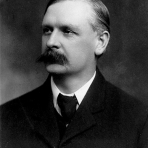Choosing the search terms is a part of literature searching I am often asked about, particularly by students for whom English is not their first language. However, as I remind them, they are often at an advantage to me as they understand the topic: I am often searching for information on a topic I know nothing about. I use this to my advantage in communication with the rest of the team, asking ‘simple’ or ‘stupid’ questions. Often this picks up aspects of the project which hadn’t been thought of by the subject specialists.
Search concepts
The first task is to determine the search concepts and the boundaries around them. This is also very useful when it comes to the later screening process as the search concept definitions can be used to decide whether a particular item meets the subject criteria. This is how I often pitch the conversation to research groups, it helps them to think about which areas lie within the scope of the project and which do not. For this project we have four search concepts, the fourth is split into a number of different parameters. At the moment they are defined as:
Adolescents: age 10-24. Any paper which includes participants within that age range will be relevant, even if some of the participants are outside that age range.
HIV/AIDS: as the review is interested in prevalence of the disease, papers focusing on the virus as well as those focusing on the disease may be relevant. For HIV/AIDS this is less of a distinction as the disease and the virus are given the same name. However, the distinction is made in subject headings.
sub-Saharan Africa: we have decided to use the list of sub-Saharan African countries as listed by the World Bank.
Structural barriers: these are split into the following topics:
Alcohol: includes all alcohol drinking, not just those who have been diagnosed with a problem or who think they might have a problem.
Transactional sex: the study is limited to heterosexual sex only, this includes sex workers as well as non-commercial relationships. However, the study may look at either gender.
Gender inequality: this has been difficult to define so I have decided to deliberately make the first draft of the search broad and possibly refine it once the rest of the project team have a chance to provide feedback. Certainly, we wish to restrict to individual or societal inequalities.
Intimate partner violence: as with transactional sex, this is limited to heterosexual relationships but the violence may be perpetrated on either gender.
Poverty: as with gender inequality, this has also been difficult to define. Therefore I have decided to keep this topic deliberately broad. However, as the study is looking for interventions, we are looking for information on interventions which offer economic empowerment.
Search terms
I admit that I try to cheat when I am compiling lists of my search terms. I always start by trying to find a good quality systematic review on a relevant topic so that I can look at their search terms. I usually look at searches compiled by the Cochrane Collaboration or the Campbell Collaboration as I know that they usually employ information professionals to put their searches together for them. I would hope to not find a review on exactly the same topic (or else why bother doing another review), but one which covers one of my search concepts. I may look at more than one review to build up a list of search terms.
You can not have too many search terms. In my teaching, I am often told that the list of search terms is getting too long. In a systematic review search, the list of terms cannot be too long. The trick is choose relevant terms which fit within the search concepts so will be unlikely to retrieve many irrelevant papers.
Tip #1: Have a text document where you can keep a list of relevant terms on a subject. Add to it as you come across more terms. I use Microsoft OneNote for this task but Evernote or Notepad will also work. I don’t recommend Word for this as I use this list to copy and paste the terms into the database and Word often copies across hidden or complex characters which the databases do not understand. On your text document, include details of any papers you have looked at to compile your list of terms. You may have to provide a reference in the paper.
Tip #2: Get someone not connected to the project to have a look at your terms to pick out any ‘ambiguous terms’. These are terms which have multiple meanings depending on context. It is remarkably easy to become blinkered and not realise that, for example, a common acronym is actually a really common word which will retrieve lots of irrelevant results.
Here is a description of how I put together a list of terms for this topic.
Adolescents
I always start putting together a search on children by looking at the Cochrane Child Health Field search. It covers children from birth to 18 years, so it does not exactly meet my needs but I can pick out the relevant terms and then look at adding those covering the older age range. For this, I had a look at the MeSH terms and found that the term ‘Young Adult’ exactly matched the missing age range I was looking for. Therefore I ran a search on Ovid Medline to find the papers which had this as a major subject term. I then looked at the title and abstract of the first 50 of these papers to compile a list of other words and phrases these authors had used. I found:
young adult, student/s, transitioning adult, early adult, emerging adult, young person, young people.
I added these to the list of relevant terms from the Cochrane Child Health Field search.
sub-Saharan Africa
As I work at the London School of Hygiene & Tropical Medicine, I have compiled searches on sub-Saharan Africa before. Therefore, I was able to re-run a previous search I had saved. It is imperative that both regional and country names are included in any search which limits by geographical area. Unfortunately it is not uncommon to see published reviews which have searched only for ‘Africa’. This misses the vast majority of studies as authors usually include the name of the country the study was completed in, but not the continent. As we had agreed that we would use the World Bank list of sub-Saharan countries, I just checked my previous search to make sure it matched. As we have no date limit on this search, I deliberately included historical country names to the search.
HIV/AIDS
I have also done a lot of searching on HIV/AIDS so I was able to re-use a previous search. However, it was run in PubMed, and this search is going to be run in Ovid Medline so I will need to translate the search before I run it. My HIV/AIDS search is based on the Cochrane HIV/AIDS group search.
Structural Drivers
Alcohol
I was not able to find a previously published review on this topic. However, this is a subject we use in our teaching and the search has been added to and refined over the years as our students suggest more terms. I decided to use the latest search we had compiled, which is:
((alcohol* OR beer OR wine OR lager OR spirit* OR drink) ADJ3 (consum* OR unit* OR purchas* OR use* OR intake OR binge)) OR drink* rate* OR drunk* OR alcohol drinking/
Transactional sex
I was not able to find a previous review which covered this topic to any sufficient detail, and this is not a topic I have search for before, so I had to compile this list from scratch. I already had some terms: transactional sex, prostitution, sex worker; so I typed each term into Ovid Medline and took a note of any other terms which appeared in the title or abstract of the first 50 results. I also did the same exercise with papers indexed under the MeSH term ‘sex workers’. I came up with the following list:
sex with money or gift or transaction or exchange, relationship with transaction, sex work/er/s, prostitution, sex industry, escort, sex with buy or commercial, brothel
I also found the term ‘female entertainment workers’ but these referred to Asian studies only so I did not include this in my list of terms. In the list above, note that I’ve noted where words may be close to each other, not necessarily as a phrase.
Gender inequality
This was difficult to come up with a relevant list of terms as the definition for this concept was rather vague. I started by looking at papers which were retrieved by the search ‘gender inequality’. I quickly realised that I had a large list of phrases which all had the word ‘gender’ in them: gender inequality, gender discrimination, gender relations, gender norms, gender roles, social construction of gender, etc. Therefore, I decided to look for anything with ‘gender’ in it , regardless of the context. I decided that the vocabulary was too variable to include all possible phrases and once the concept is combined with the other concepts in the search, it is unlikely that the broader term will retrieve many more irrelevant results. This disadvantage would be outweighed by the improved sensitivity of the search. I aim to make my searches as simple and comprehensive as I can. My list of gender terms ended up as:
gender, women with social status, relationship dependency, positive action, femininity, masculinity, roles with social, sex men/man, woman/women, women’s rights, feminism, social justice
Some of these terms may end up being too general for the topic so I may have to edit this search later.
Intimate partner violence
I found a relevant review published by Campbell Collaboration which looked at relationship and dating violence among adolescents, so I have used their search. It includes some terms which are outside the scope of this review, such as homicide or aggression, so I have removed them.
Poverty
These terms were also difficult to compile as I was not sure what exactly we were looking for. I found a few reviews looking at various cash transfer schemes, but none seemed quite what we were looking for. As we were looking for interventions which provide economic empowerment, as with other concepts, I ran a search for papers containing this phrase and started to compile a list of possible terms. The team also mentioned cash transfer schemes so I also examined the vocabulary used in papers retrieved after a search using ‘cash transfer’. Finally, I looked at anything retrieved with a search for ‘social welfare’. Like the gender inequality search, I think this may be too broad for the project, but I have come up with the following terms:
economic with empowerment or factors or barriers or freedom or abuse, access to money, remittances, vouchers, food stamps, reimbursement, prepayment with plans or schemes, financing with demand-side or results-based, financial or cash or payment on money or economic or financial with transfer or measures or incentives or allowance or exclusions or reforms or gains or credit or benefits or support, social or health or community with insurance or security or welfare, child or family or maternity with benefit or allowance, employment, unemployment, wealth, poverty, standard of living
Next stages
The next stage is to compile the list of search terms into a search strategy which can be understood by the database. I will cover this in step 3.










